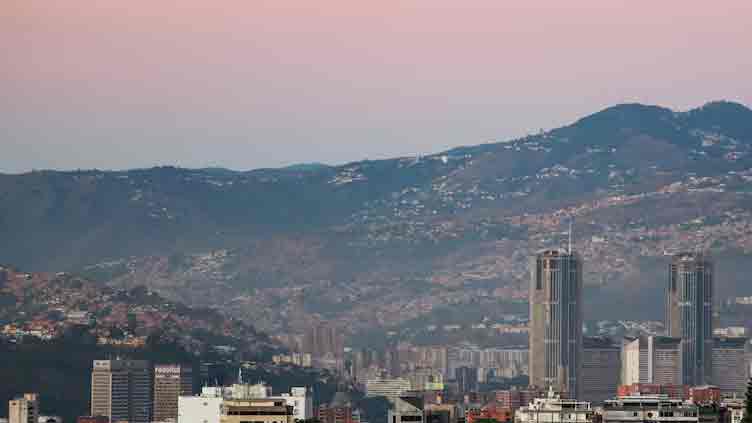US and allies slap sanctions on Venezuela officials as Maduro inaugurated

World
US and allies slap sanctions on Venezuela officials as Maduro inaugurated
WASHINGTON/HOUSTON (Reuters) - The United States on Friday imposed new sanctions on eight Venezuelan officials and increased to $25 million the reward it is offering for the arrest of President Nicolas Maduro on the day of his inauguration to a third term following a disputed election last year.
It was the latest in a series of punitive steps by the outgoing Biden administration against Maduro's government in the aftermath of the July vote, which both his ruling Socialist Party and the OPEC nation's opposition claim to have won.
As Washington rolled out the new sanctions, Secretary of State Antony Blinken called Friday's inauguration "illegitimate," saying in a statement that the US "does not recognize Nicolas Maduro as the president of Venezuela."
The officials targeted include the recently appointed head of Venezuela's state oil company PDVSA, Hector Obregon, Venezuela's transportation minister, Ramon Velasquez, and police and military officials.
The US move was coordinated with announcements by Britain and the European Union targeting 15 Venezuelan officials, including members of the National Electoral Council and the security forces. Canada also imposed new Venezuela sanctions.
“The United States, together with our likeminded partners, stands in solidarity with the Venezuelan people’s vote for new leadership and rejects Maduro’s fraudulent claim of victory," Bradley Smith, US Acting Under Secretary of the Treasury, said in a statement.
Protesters in Panama burned an effigy of U.S. President-elect Donald Trump on Thursday,
Maduro and his aides have always rejected sanctions by the US and others, saying they are illegitimate measures that amount to an "economic war" designed to cripple Venezuela.
"The outgoing government of the United States doesn't know how to take revenge on us," Maduro said during his nationally televised inauguration speech, without directly mentioning sanctions.
He and his allies have cheered what they say is the country’s resilience despite the measures, though they have historically blamed some economic hardships and shortages on sanctions.
CONTESTED ELECTION OUTCOME
The country's electoral authority and top court say Maduro, whose time in office has been marked by a deep economic and social crisis, won last year's presidential vote, though they have not published detailed tallies.
The government, which has accused the opposition of fomenting fascist plots against it, said it will arrest opposition presidential candidate Edmundo Gonzalez should he return to the country from exile and has detained prominent opposition members and activists in the lead-up to the inauguration.
The opposition says Gonzalez, 75, won in a landslide. It has published its own vote tallies as evidence, winning support from governments around the world, including the United States, which consider Gonzalez the president-elect. International election observers have said the vote was unfair.
Maduro, 62, has been in power since 2013, and the new sanctions come little more than a week before US President Joe Biden will end his term and be succeeded by Donald Trump on Jan. 20.


